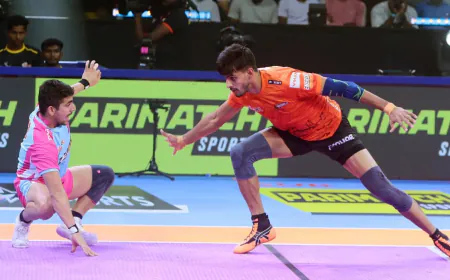Pakistan Super League Broadcast Halted in India After Pahalgam Terrorist Attack
In the wake of the devastating terrorist attack in Pahalgam, Jammu and Kashmir, that killed 26 people, FanCode, the exclusive digital broadcaster of the Pakistan Super League (PSL) in India, has suspended all PSL broadcasts. The move comes in line with India's general reaction to the attack, which is thought to have been orchestrated by the Pakistan-based militant outfit "Kashmir Resistance." The suspension mirrors the continued tensions and politicization of sports broadcasting between the two countries.

After the horrific terrorist attack in Pahalgam where 26 innocent civilians were killed, a big step has been taken to stop the telecast of the Pakistan Super League (PSL) in India. Fancode, the live streaming channel that had earlier broadcasted the PSL matches in India, has taken off all content with regards to the tournament from its quick reactions. Being one of the primary platforms broadcasting the PSL in India, Fancode had streamed the first 13 matches of the tournament, involving the best members of the Pakistan cricket team.
Reports say that the move to halt the broadcast of the Pakistan Super League was made on Friday, days after the attack. When viewers attempted to view PSL content on the platform Friday morning, they were met with an 'Error' page, which indicated that the content was no longer available. This made many think that Fancode acted fast, pulling out the broadcast following the recent violence.
The action by Fancode was not without dissent. Prior to the broadcast being shut down, a number of social media users had complained about the platform's willingness to air the PSL. Some felt that it was not right to be marketing the Pakistan cricket tournament under the present tensions and somber events.
The effects of this Pahalgam terror attack have gone beyond the sporting fraternity. India has made a series of important steps in response to the violence. On Wednesday, the Indian government issued a series of measures, one of which was the cancellation of all visas granted to Pakistani nationals. This was not limited to regular visas but also medical visas, which had been allowing Pakistani citizens to visit India for treatment. The Ministry of External Affairs informed that all the current Pakistani visas would be canceled by Sunday, April 27, and medical visas issued would be valid until Tuesday, April 29 only. This action implies that Pakistani citizens who are already in India need to exit the country before their visas lapse, leaving them with a limited time frame to do so.
In addition to this, Pakistani nationals' visa services have also been put on hold, indicating that no visas will be made available for Pakistani nationals to visit India. Residents of Pakistan, who had prior arrangements to go to or visit India, have also been covered under this rule. The government of India has also strongly warned its own nationals against visiting Pakistan and suggested that any Indian citizens present in Pakistan return to India as soon as possible. This is a message highlighting the increasing alarm and tension between the two countries following the recent attack.
The measures announced by India were undertaken after a high-level meeting of the Cabinet Committee on Security, which looks after crucial decisions on security issues. The meeting was presided over by Prime Minister Narendra Modi, and the action is regarded as a straight-out reaction to the security threat posed by the terrorist attack and India's increased tensions with Pakistan.
The Pahalgam terror attack has therefore had a chain of political and social responses, such as the suspension of the PSL telecast in India and the cancellation of visas. These actions indicate the gravity of the situation and the actions that the two nations are taking to deal with the aftermath of the attack and to secure the safety and security of their nationals. With tensions increasing, the situation remains volatile, and further developments are anticipated within the next few days.





















































